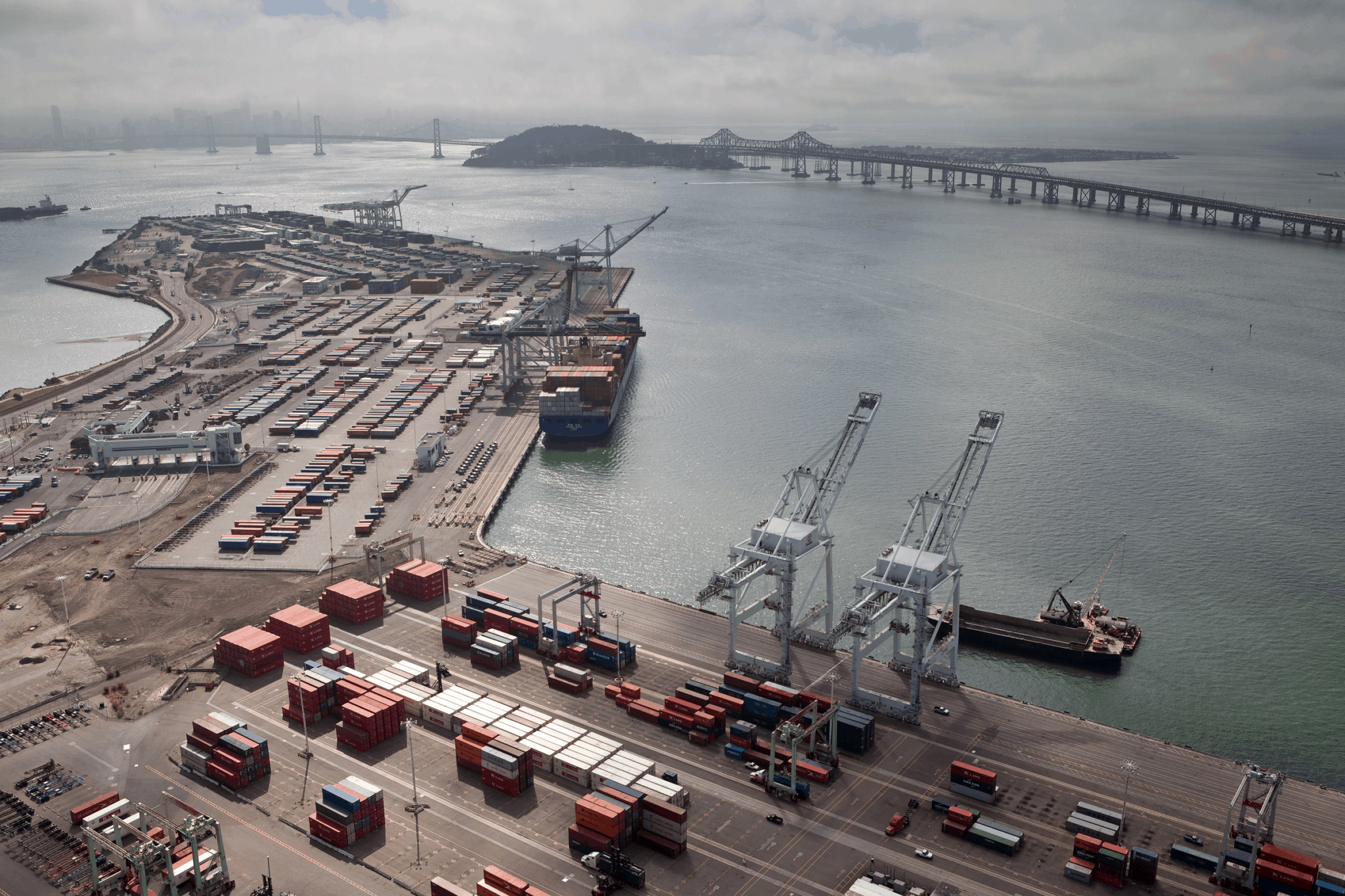
Zachary Boullt is a student at Harvard Law School.
As part of the Juneteenth labor actions discussed Friday by Rund, almost 40,000 dockworkers that are members of the International Longshore and Warehouse Union commenced a work stoppage at all 29 of the U.S.’s west coast ports. It was the largest work stoppage the union has done in over a decade, and the first labor stoppage by an international union on Juneteenth. Demonstrations and protests were held in all three west coast states, the most notable of which occurred at the Port of Oakland. Speakers such as Angela Davis, Donald Glover, former Black Panther Clarence Thomas, Boots Riley, and Bobby Grant, the uncle of Oscar Grant, who was killed by a police officer at the infamous 2009 Fruitvale Station shooting, protested. The demonstration focused on the murder of George Floyd, the privatization of the Port of Oakland, police brutality, and solidarity between movements for labor and racial justice. One estimate based on a 2014 study of port work stoppages finds that over a billion dollars worth of trade was suspended.
The MLK Labor Council, Seattle’s largest labor council, has expelled the Seattle Police Officer’s Guild from its membership. 55 percent of the delegates voted in favor of expelling the police union. The MLK Labor Council cited the police union’s failure to actively work to dismantle racism in their institution and in society. The Labor Council had threatened two weeks prior to expel SPOG if it did not agree to address the problem of racism in law enforcement in its next contract negotiations.
As states continue the reopening process, OSHA has issued a new guidance advising non-essential businesses on how to reopen. The guidance does not create legal obligations on employers. It includes recommendations for hygiene, social distancing, and isolation of sick employees, among others. It also includes the recommendation that non-essential businesses should reopen as stay-at-home orders are lifted. The guidance divides the reopening process into 3 phases, similar to many other state reopening plans.
As Congress debates another potential coronavirus stimulus package, business leaders and congressional Republicans are calling for liability protections from lawsuits from workers and customers that contract the virus. Mitch McConnell has stated his intent to include liability shields in any future stimulus packages, referring to potential coronavirus liability litigation as a “litigation epidemic” and a “red line.” The American Association for Justice, however, has responded that there has been no “second pandemic” of coronavirus-related litigation. Democrats have expressed intent to limit these shields, while labor groups have said these protections will function to shield businesses who have not taken proper steps to protect their employees and customers. Four states have already passed liability shield laws for certain health care facilities, while Louisiana has passed a law barring diners from suing restaurants based on claims that the restaurant gave them the virus.






Daily News & Commentary
Start your day with our roundup of the latest labor developments. See all
December 11
In today’s News and Commentary, Biden’s NLRB pick heads to Senate vote, DOL settles a farmworker lawsuit, and a federal judge blocks Albertsons-Kroger merger. Democrats have moved to expedite re-confirmation proceedings for NLRB Chair Lauren McFerran, which would grant her another five years on the Board. If the Democrats succeed in finding 50 Senate votes […]
December 10
In today’s News and Commentary, advocacy groups lay out demands for Lori Chavez-DeRemer at DOL, a German union leader calls for ending the country’s debt brake, Teamsters give Amazon a deadline to agree to bargaining dates, and graduates of coding bootcamps face a labor market reshaped by the rise of AI. Worker advocacy groups have […]
December 9
Teamsters file charges against Costco; a sanitation contractor is fined child labor law violations, and workers give VW an ultimatum ahead of the latest negotiation attempts
December 8
Massachusetts rideshare drivers prepare to unionize; Starbucks and Nestlé supply chains use child labor, report says.
December 6
In today’s news and commentary, DOL attempts to abolish subminimum wage for workers with disabilities, AFGE reaches remote work agreement with SSA, and George Washington University resident doctors vote to strike. This week, the Department of Labor proposed a rule to abolish the Fair Labor Standards Act’s Section 14(c) program, which allows employers to pay […]
December 4
South Korea’s largest labor union began a general strike calling for the President’s removal, a Wisconsin judge reinstated bargaining rights for the state’s public sector workers, and the NLRB issued another ruling against Starbucks for anti-union practices.